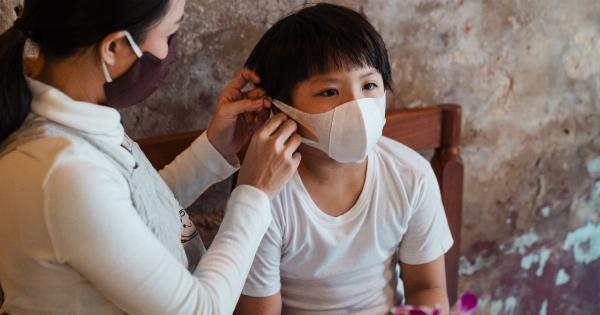In many struggling communities around the world, access to proper nutrition has become a pressing concern.
Malnourishment and food insecurity are prevalent issues that can have detrimental effects on the overall well-being and development of individuals, particularly children. The Prolepsis Institute, a non-profit organization, has dedicated its efforts to address this critical issue and restore nutrition in these communities.
Through various initiatives and programs, the Prolepsis Institute aims to improve access to nutritious food, educate the community about healthy eating practices, and empower individuals to take control of their own nutrition.
The Scope of Malnutrition
Malnutrition is a widespread problem affecting millions of people globally. It encompasses both undernutrition and overnutrition, with individuals either not receiving enough nutrients or consuming an excess of unhealthy foods.
In struggling communities, the root causes of malnutrition may vary, including poverty, limited access to affordable and nutritious food, lack of knowledge about balanced diets, and inadequate healthcare services. The Prolepsis Institute recognizes the multifaceted nature of this issue and adopts a comprehensive approach to restore nutrition.
Integrated Food Aid Programs
One of the primary focuses of the Prolepsis Institute is to provide integrated food aid programs that address immediate nutritional needs while ensuring long-term sustainability.
These programs involve distributing nutrient-rich food packages, including fruits, vegetables, grains, and proteins, to families and individuals in need. Additionally, the Prolepsis Institute collaborates with local farmers and suppliers to source food locally, supporting the community’s economy and fostering self-sufficiency.
Community Gardens and Agricultural Education
Recognizing the importance of food security and self-reliance, the Prolepsis Institute promotes the establishment of community gardens in struggling communities.
These gardens serve as a sustainable source of fresh produce and empower individuals to actively participate in the cultivation and harvesting of their own food. The Prolepsis Institute also offers agricultural education and training programs, equipping community members with the knowledge and skills needed to maintain successful gardens and utilize sustainable farming practices.
Dietary Education and Nutritional Guidance
Education plays a crucial role in restoring nutrition in struggling communities. The Prolepsis Institute conducts dietary education programs, targeting schools, community centers, and healthcare facilities.
These programs aim to raise awareness about the importance of balanced nutrition and impart practical knowledge about making healthy food choices. Nutritional guidance is provided to individuals and families, offering personalized recommendations and support to address specific dietary needs or medical conditions.
Public Health Campaigns
Alongside its direct interventions, the Prolepsis Institute actively engages in public health campaigns to raise awareness and advocate for improved nutrition in struggling communities.
These campaigns involve collaborations with government agencies, healthcare professionals, and community leaders to effect policy changes, increase funding for nutrition programs, and drive social change. By mobilizing communities and establishing a supportive network, the Prolepsis Institute amplifies its impact and ensures the sustainability of its initiatives.
Partnerships and Collaboration
To achieve its mission effectively, the Prolepsis Institute emphasizes the importance of partnerships and collaboration.
It actively seeks collaborations with other non-profit organizations, governmental bodies, and private sector entities to leverage resources and expertise. By forging alliances with organizations specializing in agriculture, healthcare, education, and community development, the Prolepsis Institute maximizes its reach and creates synergistic solutions to restore nutrition in struggling communities.
Research and Advocacy
Research and advocacy form crucial pillars of the Prolepsis Institute’s approach to restoring nutrition.
The organization conducts ongoing studies to gain insights into the causes and consequences of malnutrition in struggling communities, allowing for evidence-based interventions. The Prolepsis Institute also collaborates with academic institutions and research centers to drive innovation and develop sustainable solutions.
Moreover, through advocacy efforts, the institute strives to promote nutrition as a fundamental right and call for systemic changes to support vulnerable populations.
Measuring Impact and Ensuring Sustainability
The Prolepsis Institute is committed to monitoring and evaluating the impact of its programs to ensure their effectiveness and adapt strategies accordingly.
By engaging in data collection and analysis, the organization gains valuable insights into the outcomes of its interventions, identifies areas for improvement, and measures progress in restoring nutrition. Such evidence-based practices ensure the long-term sustainability of the Prolepsis Institute’s initiatives and contribute to a greater understanding of the complex dynamics of nutrition in struggling communities.
Empowering Individuals, Building Resilient Communities
Ultimately, the core mission of the Prolepsis Institute is to empower individuals and build resilient communities where access to proper nutrition is a reality for all.
By addressing the immediate needs of struggling communities while working towards sustainable solutions, the organization aims to break the cycle of malnutrition and create a positive and lasting impact on the lives of individuals.






























